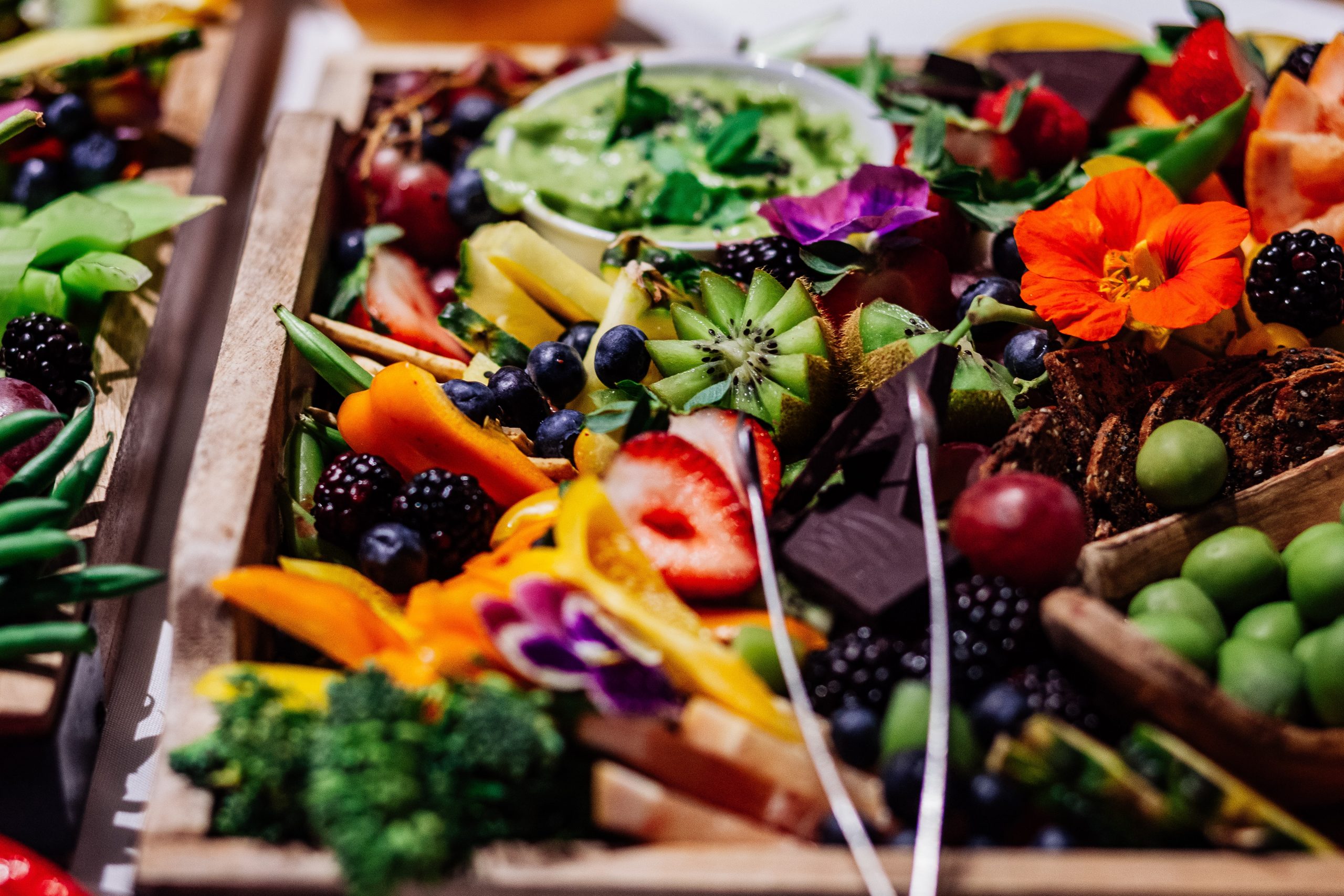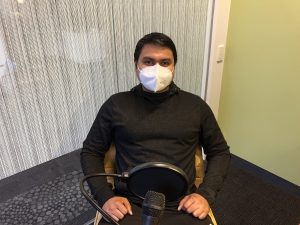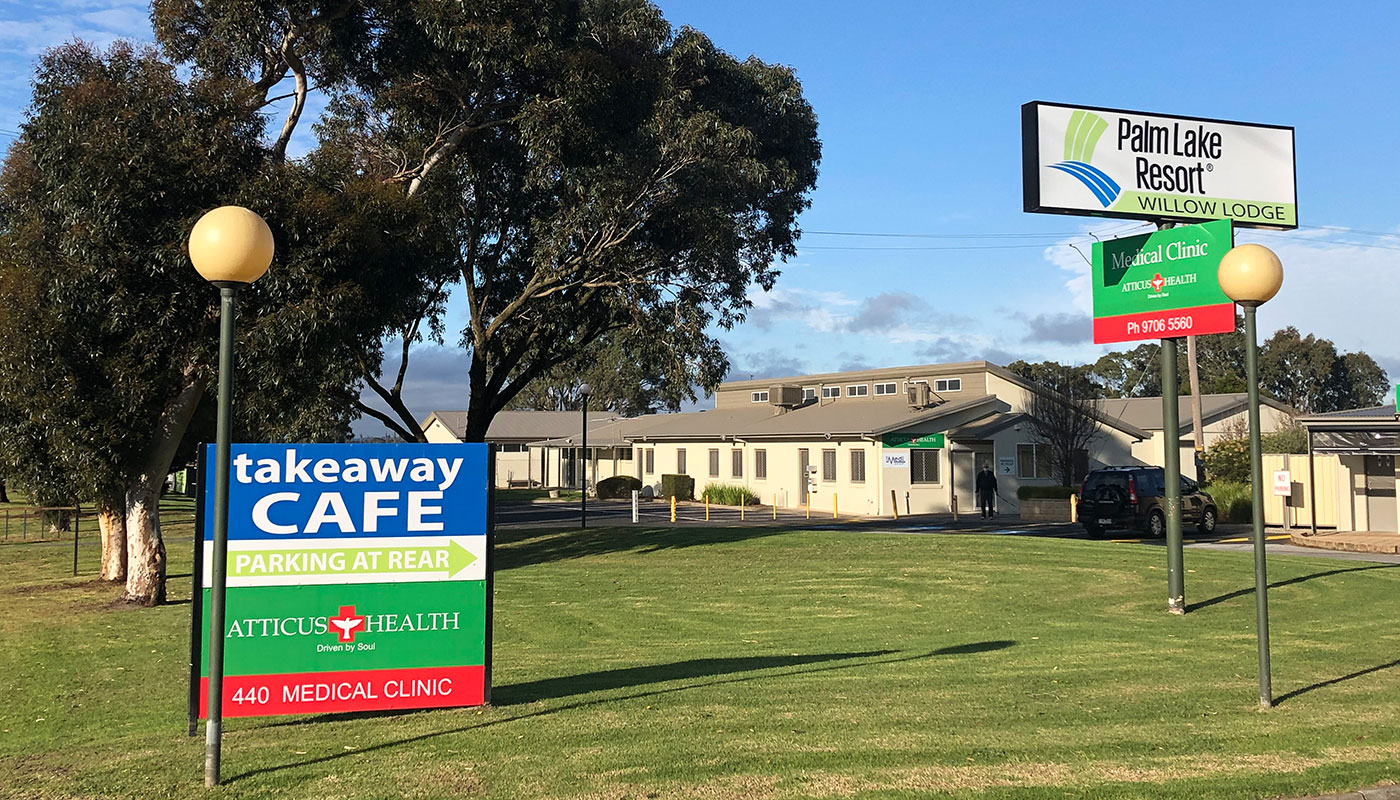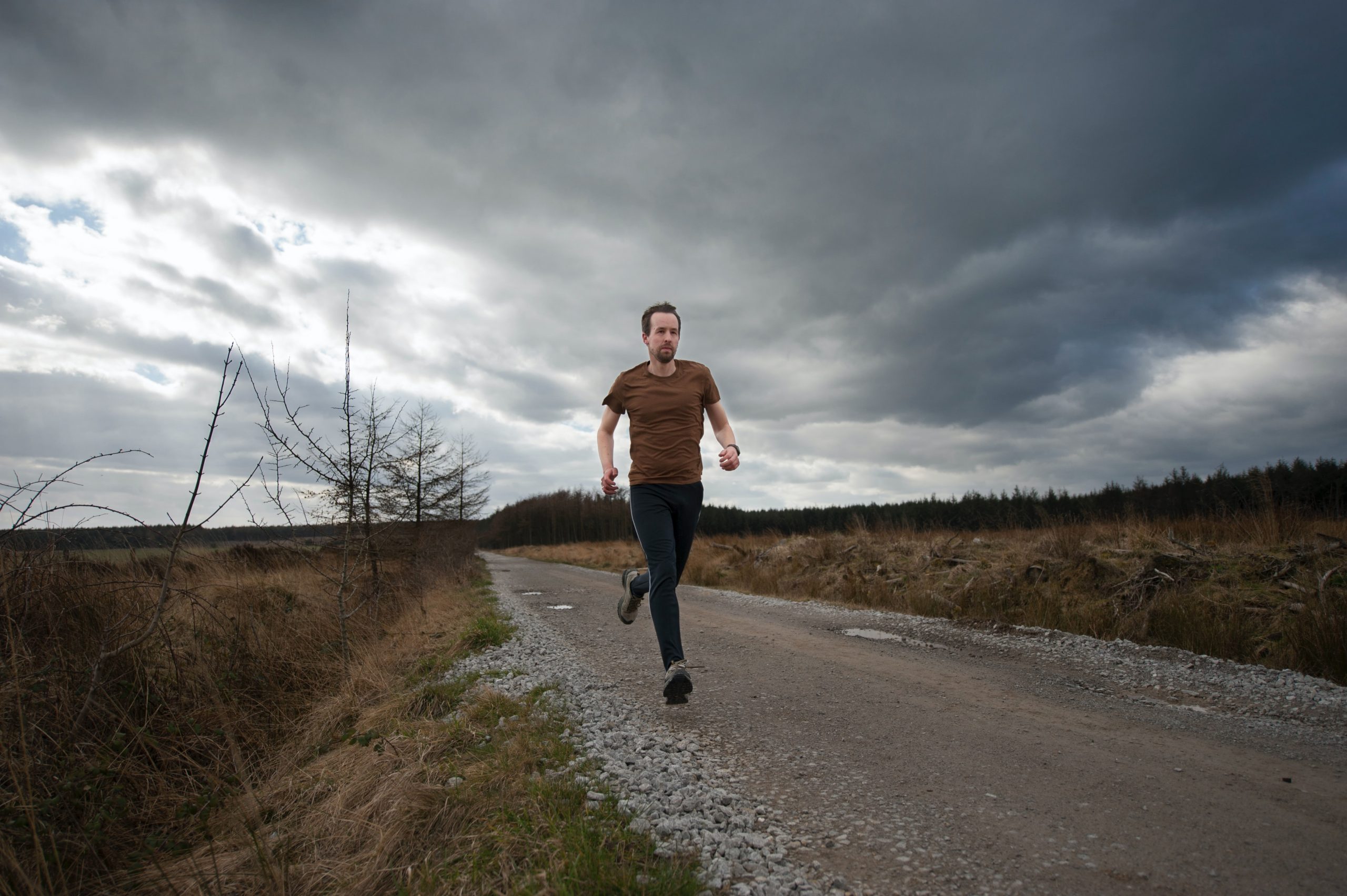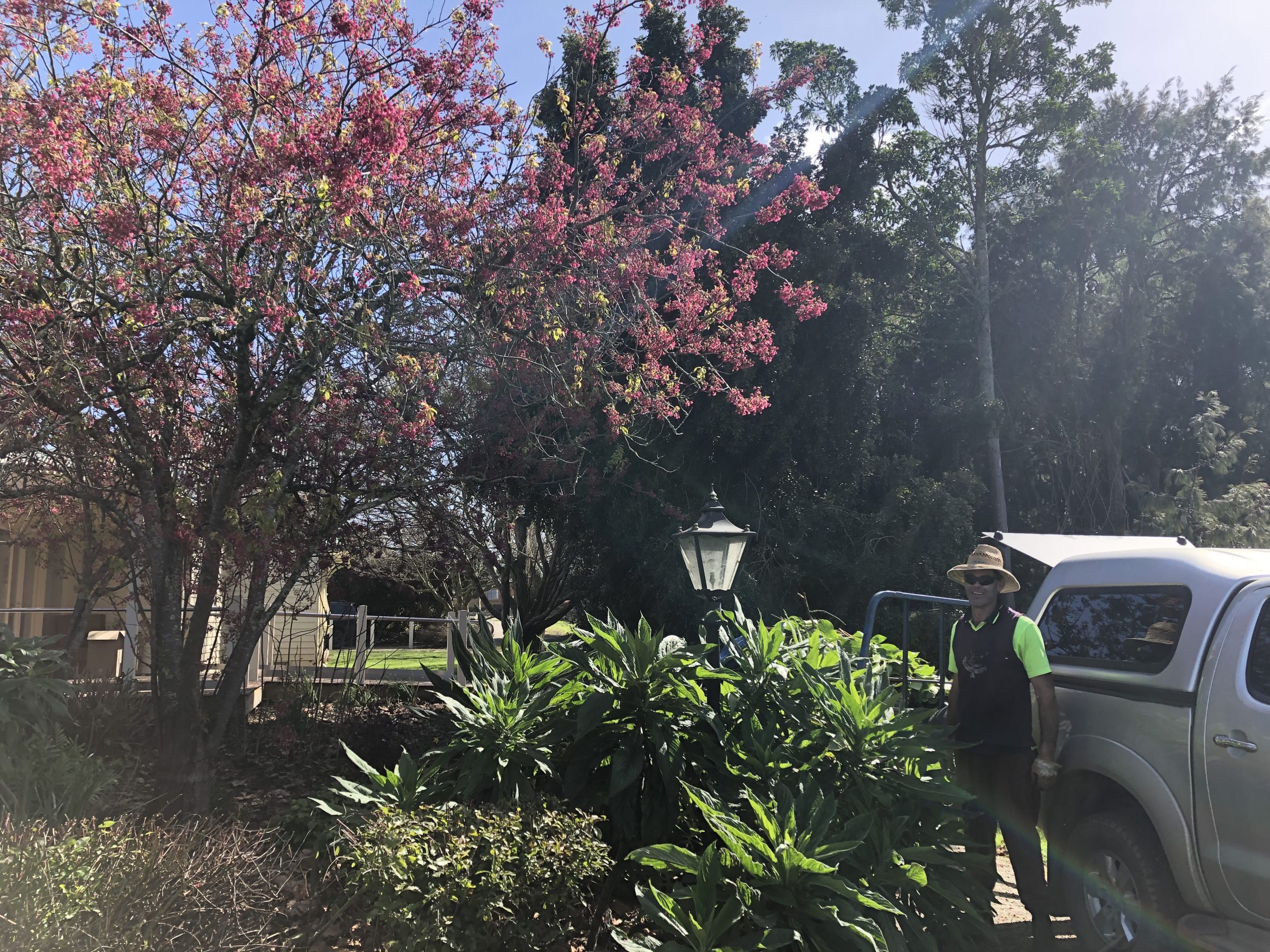In the early days of Atticus Health, where we began at Carrum, we used to have a walking group, where doctors, patients and other staff of the clinic all went for a walk. Sound crazy? I don’t think so – it was probably some of the best medicine we’ve delivered.
Lifestyle Medicine and the whole food plant-based diet
It really is about your diet, exercise and overall state of mind, coming together to help you be your best, physically and mentally. A great advocate of lifestyle medicine is our very own Dr Meridee Flower. She is a GP who consults at Atticus Health Hardware Lane, in Melbourne’s CBD. Here Meridee talks about what led her down her own journey to embracing lifestyle medicine, and indeed, why she now passionately recommends it to her patients. In particular, Meridee discusses the meaning and virtues of a whole food plant-based diet.
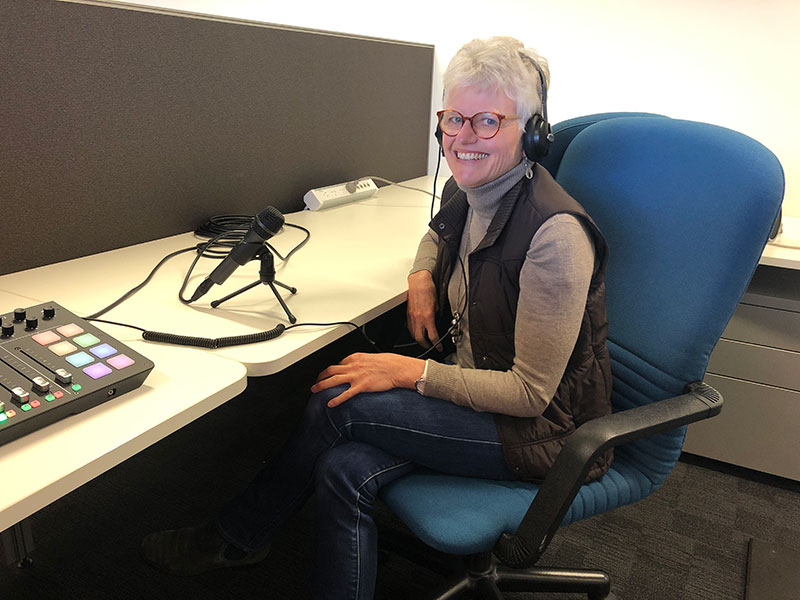
To learn more about Dr Meridee Flower and the team at Atticus Health Hardware Lane, click here.
And here is the full transcript
Floyd Gomes:
Hi Everyone, today we’re talking with Dr. Meridee Flower, who joins me here at Highett Victoria. For the purpose of talking about the whole foods plant diet, which is something she’s very interested in, and perhaps, you know, we really should listen to why, and see if we can become equally as interested. So, without further ado, I’d bring on Dr. Flower. Welcome.
Meridee Flower:
Meridee. Thanks, Floyd, lovely to be here.
Floyd Gomes:
Oh, it’s great to have you here. Really? merodio I know you’re a busy person. Indeed. You know, busy sometimes I understand even riding your bike a lot.
Meridee Flower:
Yes, I, well, this is a lovely term in this COVID pandemic. I think riding my bike is the adventure that we all need to have during the lockdown.
Floyd Gomes:
Yes, indeed, indeed. But really the the diet I say that a little bit in jest and all the same. You know, the idea here of talking today is about lifestyle medicine.
Meridee Flower:
Yes.
Floyd Gomes:
And that’s really about diet and exercise, things that a lot of people have heard before. The fact is, they’ve heard it before, probably because it’s true.
Meridee Flower:
Yes, it’s true.
Floyd Gomes:
And then on that note, melody, what are your thoughts about diet, and indeed, your own journey, down the path of the whole foods, plant iron?
Meridee Flower:
Okay, um, I got interested in diet, I think from a young person, when my father had a heart attack at the age of 50. And at the time, his ECG suggested he had an old In fact, and he recalled at 35, he had had a similar chest pain experience. And he was a little bit overweight, he had been a smoker, he had high blood pressure and high cholesterol. He was a stressed and busy executive. And he was managed at home in those days, you were his GP treated him. And I can remember him in bed at home and the whole family became interested in what might have contributed to this outcome. And at that time, we discovered the Pritikin diet and which at the time was, again, a little bit out there in terms of unclear whether that’s the way forward but looked promising. And we modified our fat intake and gave up salt and my father took all the right pills. And he ended up living until he was 85. Having had multiple, triple bypasses and stents and medications, so I’m, understandably concerned about my genetics with that family history. And so I’ve had a special interest, I think, in what lifestyle will protect me from this pathway?
Floyd Gomes:
Meridee, and as you described, it was really some of those things decreasing salt. And you mentioned the Pritikin data. I’m not too conversant with that. What was that about at the time?
Meridee Flower:
Well, Nathan Pritikin turned up and basically identified saturated fat as the problem. And he was ahead of his time. And subsequently, I think his diet definitely showed that saturated fat has a role. But unfortunately, as a result of focusing on saturated fat, he well didn’t appreciate sugar as much as we needed to. And all the low fat foods became high sugar foods, and we didn’t really benefit from that change either.
Floyd Gomes:
I see so he really just made a swap, which is, I suppose, where we find ourselves now. Yeah, as you described with a lot of sugar and a lot of foods.
Meridee Flower:
Yes.
Floyd Gomes:
Now, let’s hone in a bit. The topic today is the whole foods, plant diet or plant based diet, and how long have you been subscribing to this particular diet for Meridee,
Meridee Flower:
I started switching to this diet. About five years ago, I joined a lifestyle medicine organization. And this is health practitioners around the world who are looking at what is it that keeps us well rather than focusing on how do we manage illness and As part of that, diet is a factor. We can’t forget, however, you have to include exercise, social connectedness, love, meditation. But I hear at the moment, we’re just talking about the dietary component of wellness. And I believe the evidence is becoming pretty confident that ideally, we are plant based animals, we need to focus on eating plant based foods. If we really want to serve our bodies well and protect ourselves from diseases caused by lifestyle,
Floyd Gomes:
Sure. And you know, it really is something that a lot of people probably out there realize about themselves that they’ve got to improve their lifestyle and their health may hinge on that. And yet, it’s very hard to do.
Meridee Flower:
Absolutely, absolutely. I agree. I mean, we use food in so many ways we show love with food, we celebrate major events in our life with food, we socially connect over food. So food represents so many different things to us all. And then along came the combination of sugar, fat, and salt, and in combinations that you don’t find in nature, and so apparently, our brains do not have the skills with which to know how to modulate the intake of these foods. In nature, we have pure sugar in honey. But you can’t sit and eat back at loads of honey, but combining fat and sugar. It’s it’s just not found in nature. And we really don’t have mechanisms which to modify our, if you like love of these foods, and the food industry knows this because they’ve spent masses of money and in experimenting, what particular combinations are going to make us most likely to buy their products. And it’s very easy to become quite attached to these foods, because to go without them gives us withdrawal effects effectively.
Floyd Gomes:
And now that you mentioned withdrawal effects, if I’m interested in moving towards a plant based diet, how should I do that? Do I go slowly? Or do I go cold turkey? What’s the best way?
Meridee Flower:
It’s a interesting question, and it depends very much on who you are and what you’re trying to achieve. I think for me, I needed the information. So I’ve just read and read and read and there’s a couple of resources. Forks Over Knives is a great website nutritionfacts.org Michael gregers work. There’s an Australian based Melbourne based actually website, whole food plant based health.com.au. That is a great resource. So it’s really finding out the information. I think that’s the most motivating aspect for me, I guess it’s also what your needs are, it depends what you’re seeking. If you are feeling less than perfect if you’ve got aches and pains from possible arthritis, if you’ve got a risk that you’re going to develop diabetes, or you’ve developed diabetes, or your doctors telling you that your blood pressure is up and you tend to feel a bit puffed when you run all of these, I think are really motivating reasons to consider looking at your lifestyle. And every step towards a whole food plant based diet is the move in the right direction. So I mean, let me I guess, help understand what we mean by whole food plant based diet. The whole food part is effectively saying nature has provided us with food. Let’s try and respect the food in its the way that nature provides it rather than processing it adding preservatives, flavorings, colorings, and also, for example, with grains, the more we refine them and make them into flour, the more they bypass our natural digestive system so that we get rapid rises of blood sugar by eating white flour products as opposed to a whole grain bread. So this is the whole Food part of it. plant based is effectively choosing foods from plants and avoiding animal products. Now, you don’t have to go 100% in this direction, even just taking a step, such as replacing one meal a week with meat to make it a vegetarian meal and test the waters. I think it’s a case of try it out and see how it feels.
Floyd Gomes:
Sure so that’s a really good idea as opposed to start, say one day, a week because there are families out there who have kids and so forth. And at the end of the day, that’s sometimes a really challenging thing, breaking those habits. But that’s a good tip, isn’t it starting one day a week for plant based meal? And or plant base day, I should say,
Meridee Flower:
Yes, I really respect it’s a busy world out there. And if you’re managing children and work and trying to find time just to get everything done, that has to be done, it’s very hard to contemplate a whole new lifestyle when it’s also new and alien and it just doesn’t feel comfortable. Plus, also, if you do proceed to reducing your dependency on fat and sugars, there is a process of withdrawal symptoms I can remember the night I decided I wanted to remove sugar from my life. And for the next five weeks, I would be crawling through the cupboards wondering if I had dropped a chocolate down the back of one of the coffee caps, getting the Milo can out and eating a few scoops of Milo from the can, anything for my sugar. And I was heavily dependent on my bananas and my dates and dried fruits to get me through that phase. In the whole food plant based diet, were very happy with fruit, you do not have to limit it. Lovely research studies have suggested or demonstrated that diabetics can eat two servings of fruit a day or four servings of fruit a day and their blood sugar levels remain the same. So nature has provided us with these sources of sugars in packages where they don’t get instantly absorbed and pressure, our diabetes vulnerability. They metabolize in a way that the sugars are gradually absorbed, and not as much of a risk to our health as processed sugar as an act as sugars, and honey.
Floyd Gomes:
Through meridian. Once again, it comes back to water. What was the issue of motivation? And have you got any tips for our listeners? who think this is all a great idea, but their motivation indeed waxes and wanes? And yeah, as a GP? What would you say to that person?
Meridee Flower:
we have to be so loving and respectful of ourselves. I think there’s no point flogging yourself, and then feeling a sense of failure and giving up. It’s recognizing that life is busy, life hopefully as long as time and to gently nurture yourself and decide how you want to go forward. And to get support. It’s great when you can do it with other people. We are social beings. So finding someone else who’s interested in joining you along the journey. I mean, I can remember when I went home and decided, Okay, I’m going to try this out. And suddenly I go home and I’m a meat and three veggie girl from way back. And I’m thinking, Okay, I’ve got dinner to provide. And I’ve only got whole foods and plants to provide dinner out of it and I had to learn a whole new way of cooking and it doesn’t come easily. And it’s not straightforward. It takes learning. And it is discovering a new way to cook and a new way to think. It’s preferentially using no oil. So if anything, I’ll use an oil spray on saucepans. Or, I’ve switched to potentially sauteed onions in a little bit of stock as opposed to frying them. So there’s a lot of different strategies, but it takes a little bit to learn these and so it’s giving yourself the opportunity to learn that gradually without feeling hopefully overwhelmed or traumatized by the journey. But the motivation is really I couldn’t it blew my mind after about three weeks of changing my diet how physically well I felt. Mentally, physically, spiritually, it just absolutely transforms your energies and the studies have shown is it it makes a difference to brain function. There’s just a few really, moments that really were stunningly interesting to me. One was an image of blood cells red blood cells circulating through the blood vessels of a hamster. So someone had a camera and took a photo and video footage within the hamster cheek of the red blood cells circulating through their little blood vessels. And it’s amazing to watch because blood cells rush around these blood vessels about 25 kilometers an hour. And then they fed the hamster a serve of cream, so a fully full fat meal, which the hamster lapped up, and they monitored the blood circulation. And within minutes of eating this food, the cells start to slow down to the point that they almost slow to walking pace. Now that is very, very confronting to see, and this is happening to every time you eat a fatty meal. The blood cells slowing down so they can’t deliver oxygen to your cells as effectively and thereby you become sleepy. And how many times have we eaten a meal, and shortly after feel sleepy and you’re yawning and want to have a snooze. And it’s effectively this fat slowing down the red blood cells supplying oxygen to the brain. And I thought to myself, gosh, I don’t want that. I like my brain having its oxygen. And so the consequences of switching to the diet, I used to get so puffed when I went out for a jog, and I suddenly stopped getting puffed, I still get sore legs, and I’m still not particularly athletic, but I was so amazed at how much it changed my breathing.
Floyd Gomes:
Wow. So you could visualize the blood slowing down which is very confronting. I’m just thinking, as you talked about the hamster about my puppy, an Australian Shepherd who has on more than one occasion jumped up onto the kitchen bench, and overnight, there goes all the butter. Of course the butter is then found somewhere in the house on the floor. So I guess his blood cells slowed down for a period of time you’d say.
Meridee Flower:
I bet the puppy had a ball.
Floyd Gomes:
Yes, he did. Yes. Can I just say, according to him margarine is as good as butter.
Meridee Flower:
That’s the gorgeous things about puppies.
Floyd Gomes:
Yes. But no, I take the point that’s that’s really confronting and what you’re saying I suppose this is an interesting phenomenon. It is a chicken and the egg. And I suppose this is a case of your diet, having a bearing on on how you can exercise and your ability to do that. And vice versa really isn’t like they both come full circle. And I suppose if you can make one change than the other feels better, and it feeds back.
Meridee Flower:
Yes. Interestingly, I believe when you start loving and respecting yourself when you start giving yourself permission to do your best. And thereby you make changes. And these changes physically make you feel better, you then feel more inclined to proceed in it’s just a self fulfilling prophecy. But it isn’t easy. It’s not. That’s undermining the I guess the advantage of being a doctor every day I see people coming in with high blood pressure diabetes, it’s very reinforcing that I don’t want this pathway. And so I get a constant prompt to say, I could eat this cake. Or I could resist this cake, and thereby resist having to take pills for my high blood pressure. It’s a great advantage, being a doctor and seeing that every day. Whereas if your life is not involved in health and constantly seeing the consequences of poor diet, I think it’s a lot harder to so easily address these issues.
Floyd Gomes:
Yeah definitely you see that in front of you all the time. Now, these days with people having more to do with their home environments and essentially working from home. What do you think? Is there an opportunity there? Indeed, we’re allowed to exercise. I must say when I go outside and I see more people outdoors, I’m really quite taken aback to say well, that’s, that’s great. You know, I’m seeing all these people on the streets and outdoors. What do you think about our current times and the appropriateness of making these changes?
Meridee Flower:
Yes, it’s it’s an opportunity, isn’t it? We have a great upheaval in our times. And so I guess, with times of great change, there’s an opportunity there to sit back and decide whether you want to make change. I am I agree with you nothing like lockdown to them go out and see all these people around and feel uplifted by other humans, other humans having to walk the same journey. And there’s a real sense of connectedness that I think perhaps we were losing by our busy lives and rushing here and there and not really paying as much attention to other people that we now get the opportunity to do, because we’re all forced into a slower well, less, less variety, I guess, but perhaps more socially connected ways. But I’ve heard people saying that they’ve really enjoyed time at home to start cooking their own meals. And a lot of people as a result are putting weight because the meals, they’re choosing to cooker, the gourmet recipes that are often demonstrated by shifts on television that involve quite a high fat, high sugar, high high salt intake. So we don’t really get a lot of television representation of foods that are much more kind and healthy to us. And I think there’s a little bit of a, I guess, the adverse consequences of companies wanting to make profits and sell their products. And as a result, what we’re seeing on television has been influenced by that rather than what really is the foods that we need to eat if we want to be remain? Well,
Floyd Gomes:
It does come into play isn’t that what you’re exposed to be it from your own upbringing along the way, or the media has a big influence isn’t even looking at major sports and so forth. That sponsorship just goes hand in hand all the time, which we’re so we’re so used to now that we don’t even think twice?
Meridee Flower:
Yes, I do think it’s quite interesting looking at the impact of industry on what information we’re given. I love it. One of my core greggers videos on his website is about the tobacco industry. And it started become evident that smoking was bad for us in 1912. And in 1930, I think the association with lung cancer was made in in 1950, Richard Doll came out with really good evidence that smoking caused lung cancer. And in 1965, the American AMA and American Medical Association came out would not endorse the Governor General’s report that smoking caused health problems. They refused to endorse it that year. But that year, they also got 10 million American dollars in funding from the tobacco industry. And, you wonder whether that was real related to their refusal to endorse the evidence that smoking and lung cancer were related, and I think the same applies to food. Now, the food industry is representing their products in a way that describes them as full of health, but because of course, they’re not about to disclose the evidence that actually, it would be safer not to eat their food.
Floyd Gomes:
Yeah, sure. So I suppose these things, take that momentum to swing and keep moving in that direction. But there are so many people on the boat as you said. I’m gonna just play the devil’s advocate here a little bit and sort of try to a couple of concerns that might be there among listeners. And fair enough. So eating only plants as in the vegetarian diet, as it were. You know, we understand that we get a lot of iron from mate, am I going to become iron deficient?
Meridee Flower:
Yes, it’s an absolutely reasonable concern. And the interesting thing about iron deficiency is an equal number of meat eaters present with iron deficiency, as vegetarians do. And to me, it’s a lot more complex than whether you eat meat or not. The problem we have is the haeme iron, which is the iron that you get in animal products, is actually quite significantly linked with cancer. Bowel cancer is much more common in meat eaters, and many other cancers as well. So whilst iron is definitely a very good source, I mean, sorry, whilst meat is definitely very good source of haeme iron, it may not be the iron that you really want to be getting. And there are plenty of good vegetarian sources of iron. So it is a challenging topic. It is. We have been fed stories about what our source of iron should be. But when you actually unravel these stories, you’ll often find that there’s a food industry behind the story. And the actual science does not necessarily reflect that truth.
Floyd Gomes:
Sure. So as far as again, it needs that deeper probing along those lines, Dr. Flower, can we think about any other supplementation that you might need If you choose to only eat vegetables.
Meridee Flower:
veggies good go fully whole food plant based diet, then definitely vitamin B 12. supplements are recommended. Vitamin B 12 is inherently in animal products and not in plant based products. That’s really it. There’s a lot of research going on and questions about the benefits of other supplementation. I definitely know we could do with looking at our vitamin D here in Melbourne. Interestingly, there’s not many studies in the world have shown vitamin D supplements have made the great health benefits we hoped they would. And I suspect it’s got something to do with the sunshine that we get vitamin D from has other health benefits. And perhaps we actually need the sunshine. But we also have to be very, very cautious about not having an overdose and increasing our skin cancer risk.
Floyd Gomes:
Yeah, definitely. So it is a balancing act. And on that note, as well. I’ve always subscribed to various 80/20 rules. Can it apply here. Can I be good 80% of the time on the whole foods plant diet and go wild for 20? Will my blood cells still be running, or will they start to walk?
Meridee Flower:
I guess that’s respecting being human, is it not?
Floyd Gomes:
Yeah,
Meridee Flower:
I guess I feel that 80/20 is far better than 50/50. So
Floyd Gomes:
Thank you.
Meridee Flower:
Any move in the right direction is a positive step. It really depends where you’re coming from. If you’re someone with high blood pressure and high cholesterol and heart disease, you may want to go 100% because the benefits to your
Floyd Gomes:
Yeah, definitely I I think the human body is health are so enormous. There’s a beautiful study in the States. Dr. Estland, this is in 1999 and he took 18 people who were going to die because their arteries in their heart were so severely blocked with plaque and they’d been having multiple heart attacks. And he actually delivered the food to them. So he this was a very tightly controlled study where he restricted what they ate while they agree to it, but they stuck to what he provided. And he provided whole food plant based diet, and they effectively 100% reversal of their coronary artery disease. In other words, they had no blockage of their arteries and 20 years later, they’re all still alive. Whereas the control group, the population of people who did not change their diet, something like 56% had had another heart attack in the following 12 months. So the benefits of going for the hundred percent whole food plant based diet is out there. Science has proven it. But of course, we’ve all got different genetics and different vulnerabilities and and different aims and desires in life and I respect that and I think it’s a case of each individual determining what it is they want and it’s a little bit like saying is it okay t smoke a couple of cigarettes week I guess. And I guess it’ all dependent on how much this might be a bit extreme but ho much poison your body ca metabolize and process an that’s a bit of an exaggeration when it comes to food I thin each person has to choose thin actually very forgiving. I suppose we push it pretty hard really don’t we.
Meridee Flower:
It is, it is. And who wants to live forever? I certainly don’t but I do enjoy whilst I’m alive feeling well, feeling energized. I definitely one thing that over this COVID pandemic I’d studied a course on this nutrition diet, a masterclass in nutrition by Michael Klaper and after doing this I decided okay, I was having milk in my coffee and I was having yogurt on my breakfast that I would drop those and go 100% whole food plant based diet out of interest, and I was surprised I had been getting joint pains in my fingers and waking up in the morning getting out of bed feeling like I was an old woman. But a bit of stiffness, it wasn’t too bad. It lasted about 10 minutes, but it was every morning. And lo and behold, I’ve stopped having any joint pains in any stiffness. And it makes me wonder was the dairy that I did have in my diet at that point contributing? And this is what the evidence is suggesting. So I guess it’s probable, but you have to live the experience, I feel to know whether it’s something that will benefit.
Floyd Gomes:
Yeah, definitely. And I just listening to you talk about your you know, how you described a bit earlier, that we’re a social being, you mentioned to me before this podcast about how you can see a GP in a group setting and, you know, go through some of the lifestyle medicine types of presentations with a GP, do you want to just talk about that a little bit more that that’s different to what we’re used to as a one on one consultation with a doctor?
Meridee Flower:
Yes, you’re what you’re taught referring to a shared medical appointments. Now, this is a opportunity that the lifestyle medicine organization is really promoting. And there are doctors around who are doing this, particularly with patients with diabetes, in actual fact, where they get patients meeting together for an a medical appointment, so they are turning up to see their doctor for an appointment. But instead of going into a room where it’s just the doctor and the patient, it’s the doctor in perhaps 10, or 15 patients, all whom have diabetes. And one by one, the doctor gives a five minute consultation with each individual. So the individual presents their problem, and the doctor responds. But in doing so, the response is heard by everybody. But at the same time, there’s opportunity for discussion amongst the group and sharing of ideas and insights. And initially, I guess, people were apprehensive about how this would work. But we are social beings and people are really encouraged by sharing their journey with other people, it would seem and it’s a very successful model. And, and it works apparently, very effectively. Now, it would be a lovely way to present this whole food plant based diet model. But no, I haven’t actually started doing so at the moment. And I guess that’s an opportunity for the future. There’s definitely already a couple that run the whole food plant based health.com.au website, Jenny and Malcolm who I know and they run retreats lasting over a weekend, where you can immerse yourself in this lifestyle and hear speakers and the foods provided by a dietitian. Not happening over COVID obviously, they’ve I think they’ve changed their program to a web zoom based course. But there is opportunities to try the diet out in that way if people are interested.
Floyd Gomes:
That sounds very very interesting to me because I suppose every time I see a junk food ad, it’s generally a group isn’t a very rarely an individual, you know, you’re on the beach or the with a bucket of chicken. So it’s probably refreshing to think that maybe there’s an opportunity as a group to to get together and talk about some healthy options and live those experiences out as a group.
Meridee Flower:
Absolutely. And have fun at the same time.
Floyd Gomes:
Yeah, and you know, not not need the bucket of chicken. Look, I think this has been a very, very stimulating conversation. I certainly feel like there’s always room to improve in life and, you know, nine times out of 10 your diet is such a fundamental one and as you described the idea of really combating some of those ill healths or things that can go wrong with your body through lifestyle as opposed to taking pills, it’s it’s just got so much promise. I think that I just like to ask you, just so I can also get a little bit of, you know, some good vibrations coming my way but what do you do to stay fit in terms of an exercise regimen? Meridee, I know you’re a pretty fit person.
Meridee Flower:
I guess so. I have always like walking the dog and I always walked for a long time and then about oh, I think it was about 10 years ago. My house When decided he was overweight, he couldn’t walk 10 yards without a back pain interfering with exercise. He was a stressed busy executive working really long hours, and he decided to join a triathlon club as you do. There’s the BRW triathlons I think that’s what it’s called where businessmen get together and suddenly do a triathlon out of the blue and I think they probably have quite a few heart attacks along the way. But um, he decided he was going to do this triathlon and I had no idea what a triathlon was at the time and was pretty gobsmacked and overwrought, actually, with what was required. And so to join him on the journey, I guess his loyal wife. Well not to be left behind, I decided I was going to take up running and I’d never been a runner. In fact, I had this mindset that I couldn’t run. And I was just so impressed. I joined the club and coach around the Tan, or not the Tan, around Princess Park in Carlton. And I turned up on the first day, and this was a group of runners who were training for anything between a five mile run or the Boston Marathon. And I ran, I think, about 200 meters and thought I was gonna have a heart attack. And I expected to be laughed at and the coach said, “wow, that’s amazing Meridee well done.” Anyway, so I kept turning up, and I ran a kilometer. And then the coach said, “You’re the most improved today,” he was a wonderful coach. And I shortly after, well, shortly, a few, I guess, a month or two into the group I was running with a few people about three to five K’s and feeling very puffed. But the coach just kept saying how amazing that was. And what I found is it was just so different. And to suddenly realize I had limited my life by saying I couldn’t do something and to realize it wasn’t true was a breakthrough for me. So since then I did triathlons and we do regularly go running and, and cycling. And I’ve also got a zoom class, I do it weightlifting throughout the whole COVID pandemic, a series of exercises on mats and with weights and socializing and exercise I believe is the only way really to sustain a regular exercise program. And it’s all become self fulfilling. It just happens now. And in fact, it’s I look forward to the social get together and we accidentally exercise throughout it.
Floyd Gomes:
Wow, that sounds like such a real way to live indeed a lifestyle. And we’ve sort of come full circle now going from diet and talking about now exercise. And that’s another thing I’ve noticed with COVID. Everyone’s into their gardens. I think that’s terrific. You talked about vitamin D, and it’s, every time I’ve seen a garden, I sure sometimes I’ve come for a skin check, and that’s probably the downside having too much sun, but geeze, they’re pretty fit.
Meridee Flower:
I think we get a lot more from our garden than just exercise.
Floyd Gomes:
That’s true. That’s true.
Meridee Flower:
It feeds the soul it watching a plant grow and connecting with nature, I think is absolutely essential for well being.
Floyd Gomes:
Yeah, that’s right. And clearly you clearly you like your garden too.
Meridee Flower:
I’ve got a veggie patch, a new veggie patch, thanks to COVID
Floyd Gomes:
Oh, nice, nice. I think that’s again, one of those, the silver linings about, you know, the situation we find ourselves in, so refreshing to see even when they are describing new developments and so forth, the adding back of gardens and the value of green spaces. Indeed, I was doing a little bit of reading recently on the idea from a GP standpoint of green prescribing, but at the end of the day, yeah, once people connect with nature in that way. Indeed, with the COVID veggie patch, it’s again, just as a positive thing. And I guess in your case, you can get that dual benefit of eating your hard work.
Meridee Flower:
Yes, I have a problem ever getting into the kitchen. It always gets into my mouth before I get there.
Floyd Gomes:
God, there you go. That really is full circle. And look, I think that it’s been a real eye opener for me hearing you talk with such passion about the whole food plant diet and beyond, as you’ve described lifestyle medicine. It’s not easy. The fact is, it’s not easy, but I think that you’ve talked about information a few times and I really respect that as in, if you can immerse yourself in material, then indeed hopefully some of that rubs off after a period of time and all of your input today i’m sure has helped our viewers that way so yeah, before we sort of wrap up, Dr. Meridee Flower, do you have any other parting words for our listeners?
Meridee Flower:
Oh, I like to thank Floyd for the opportunity to come and speak today and to spread the word that you don’t have to be unwell and you don’t have to accept that pills are your only choice. I think if you’re diagnosed with high blood pressure, knowing that you could potentially if you choose, completely reverse the whole disease process by lifestyle changes for some people, really lovely news. So thanks, Floyd.
Floyd Gomes:
My pleasure. And thank you again, Dr. Meridee Flower for joining us today and I hope everyone’s got something out of it. And yeah, best of luck with making some of those changes and catch you next time.
Meridee Flower:
Bye.
